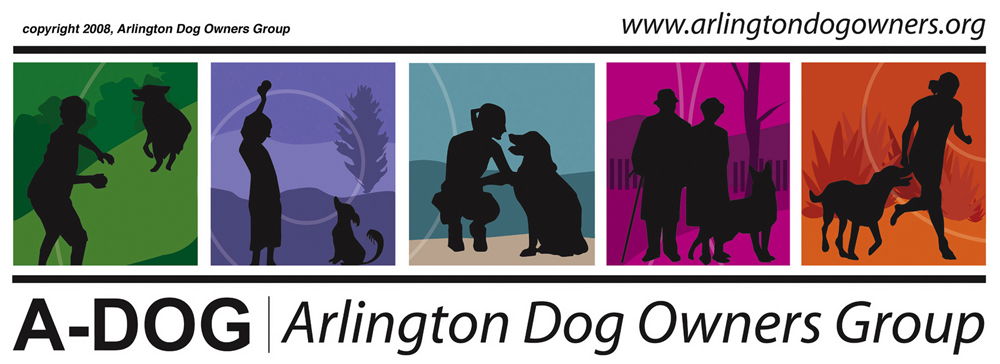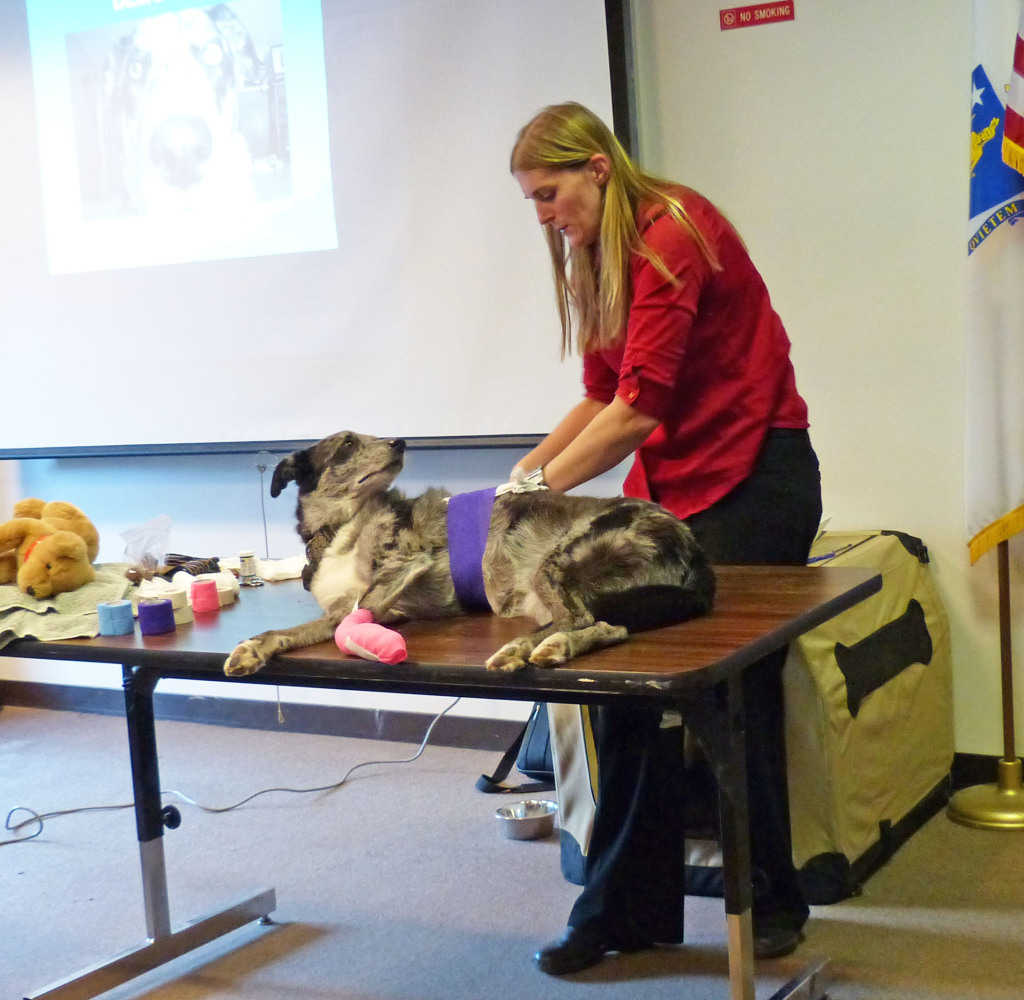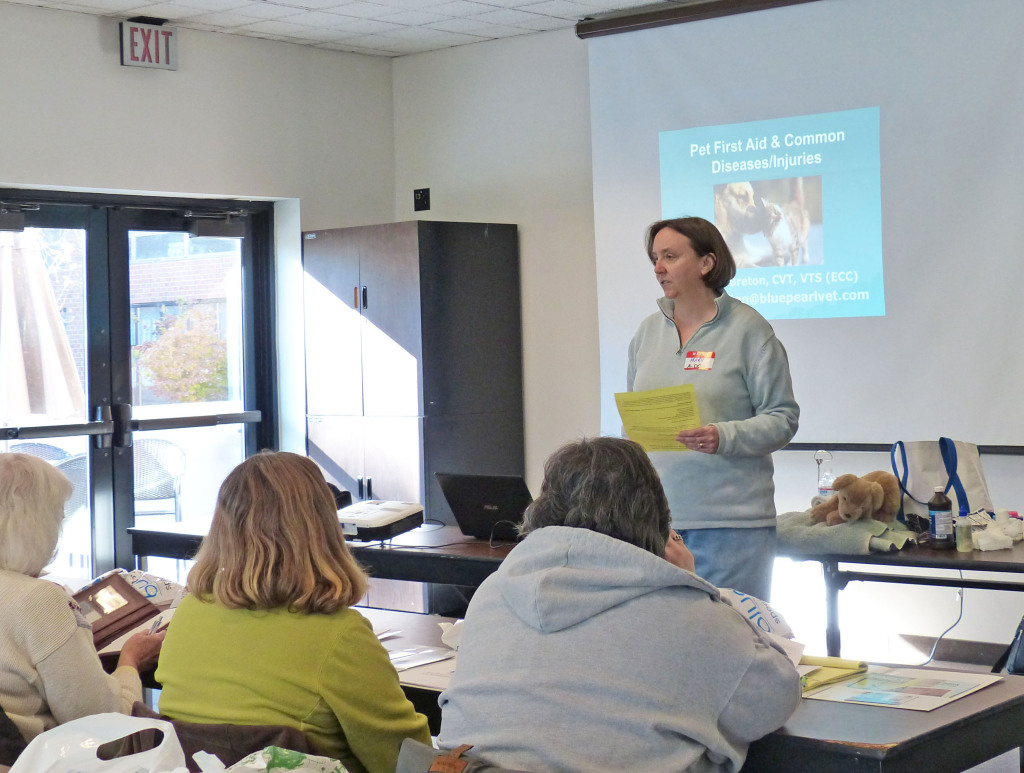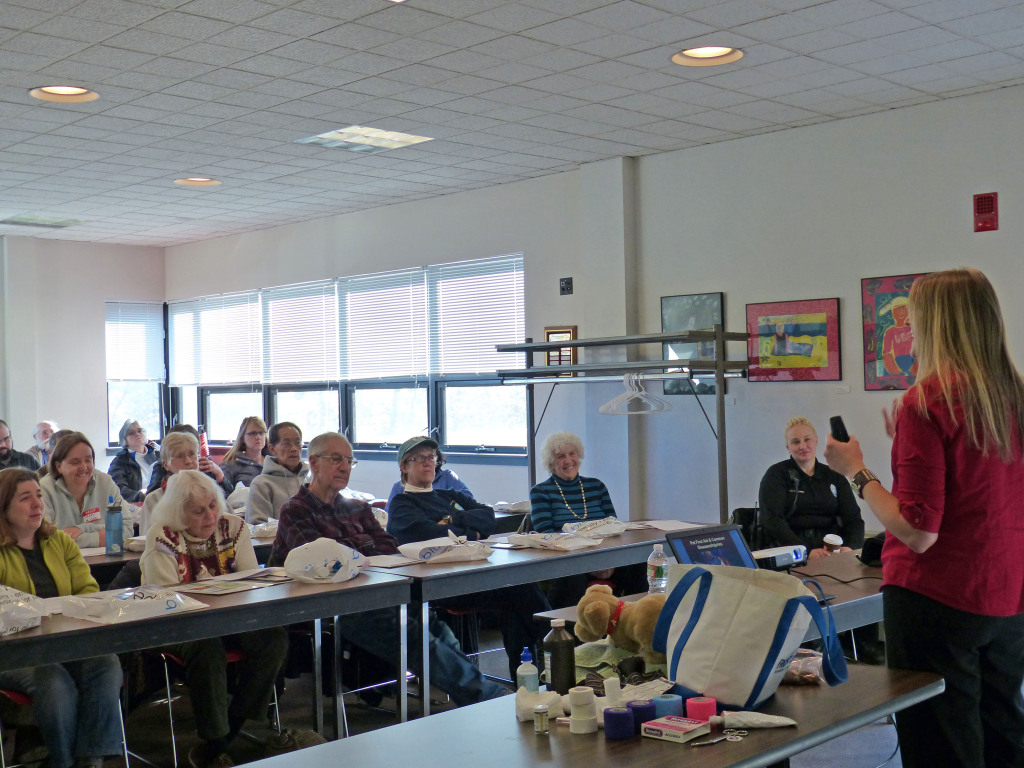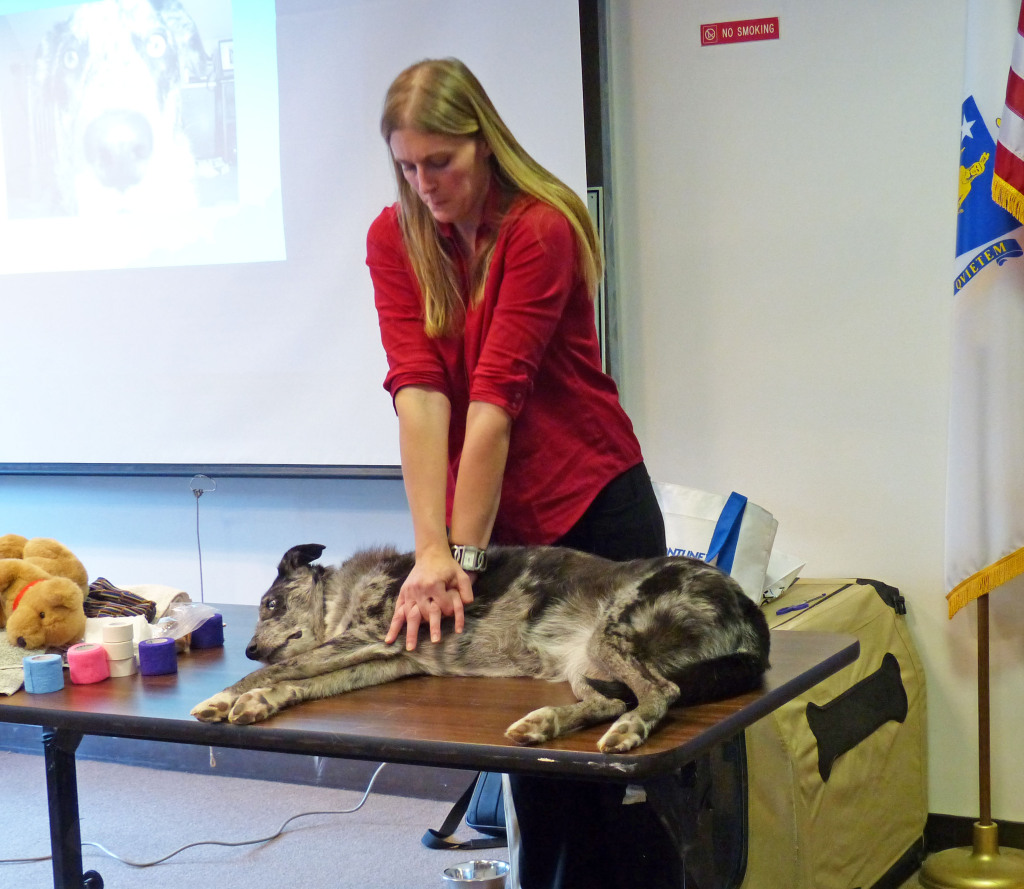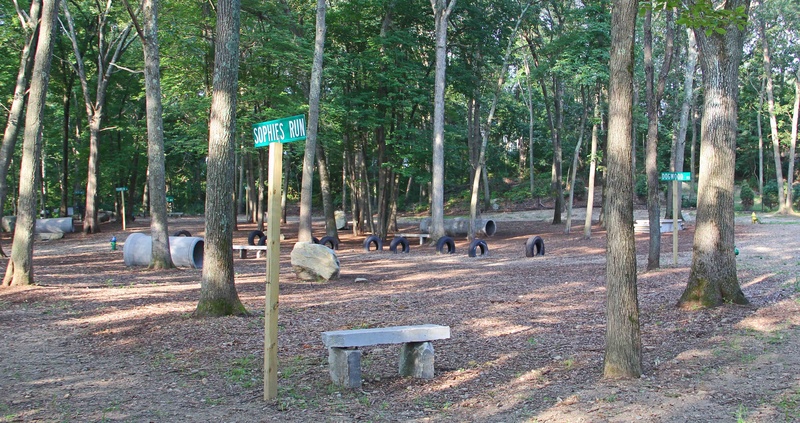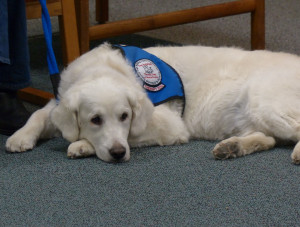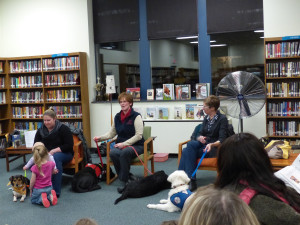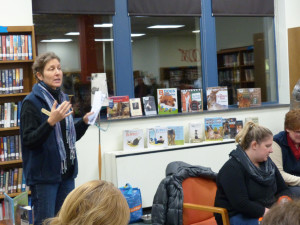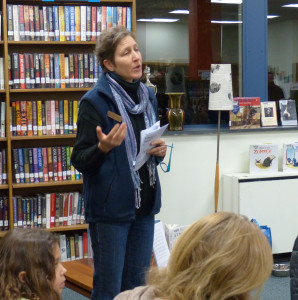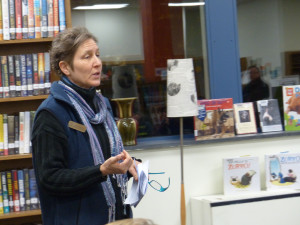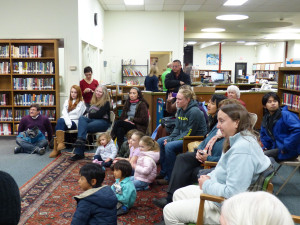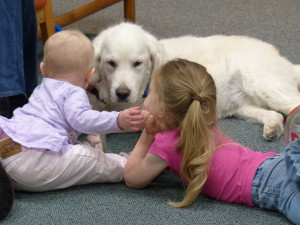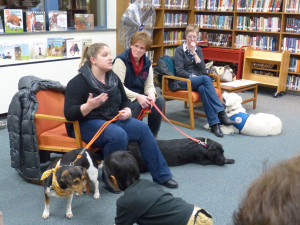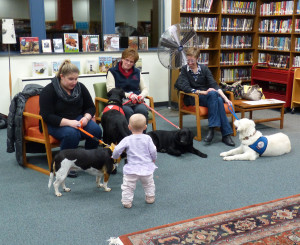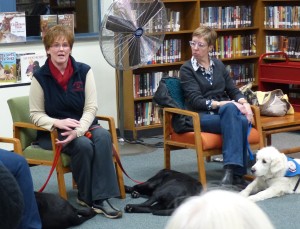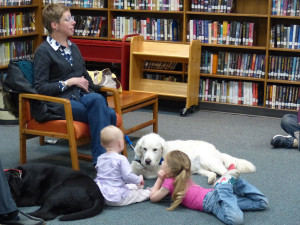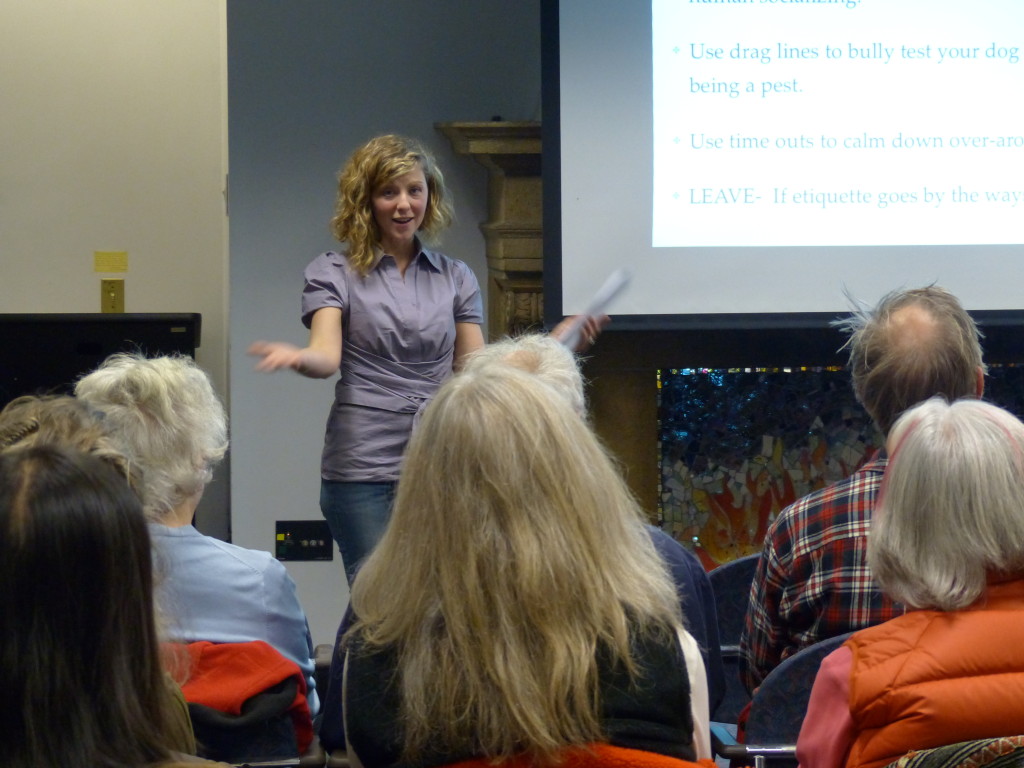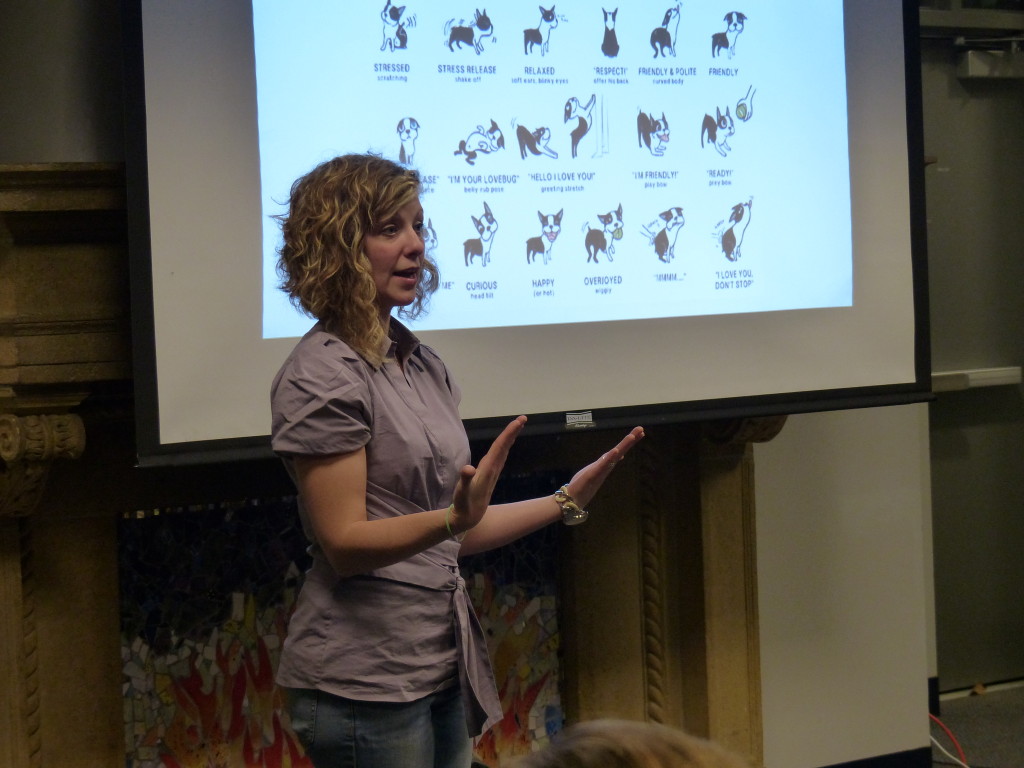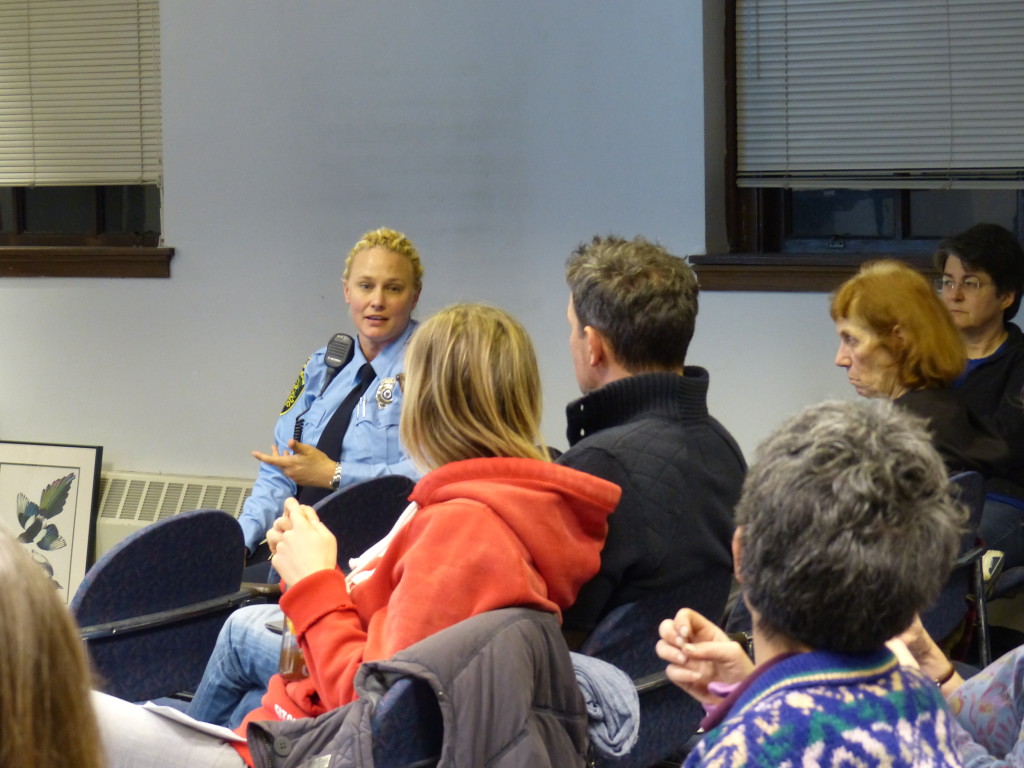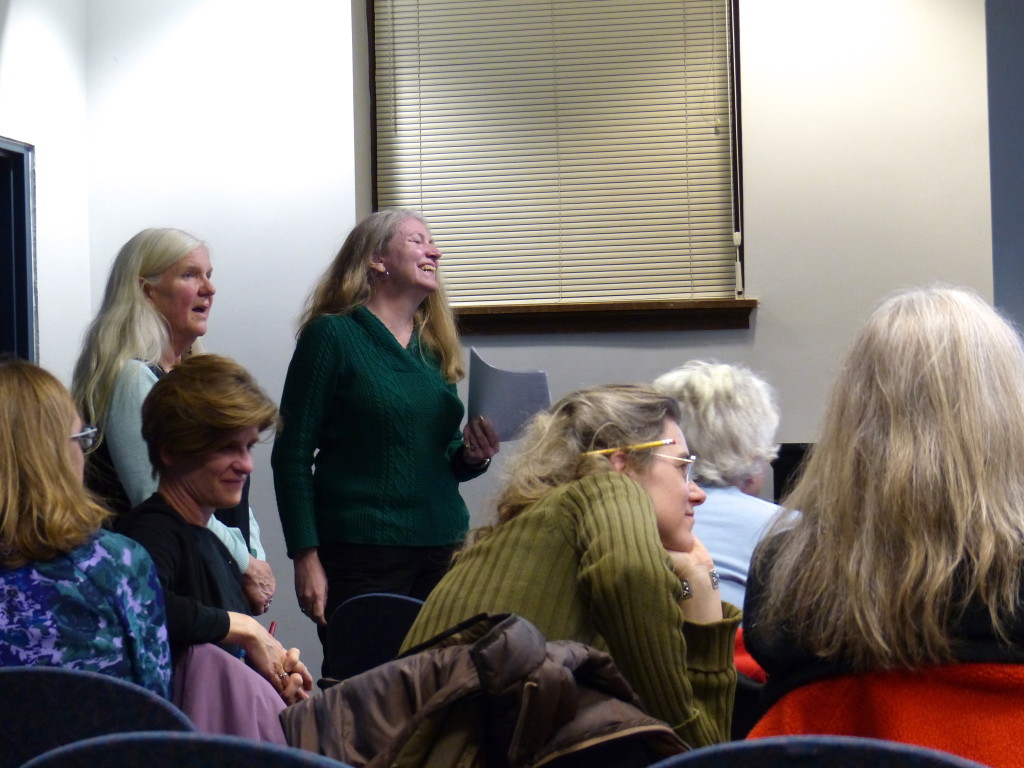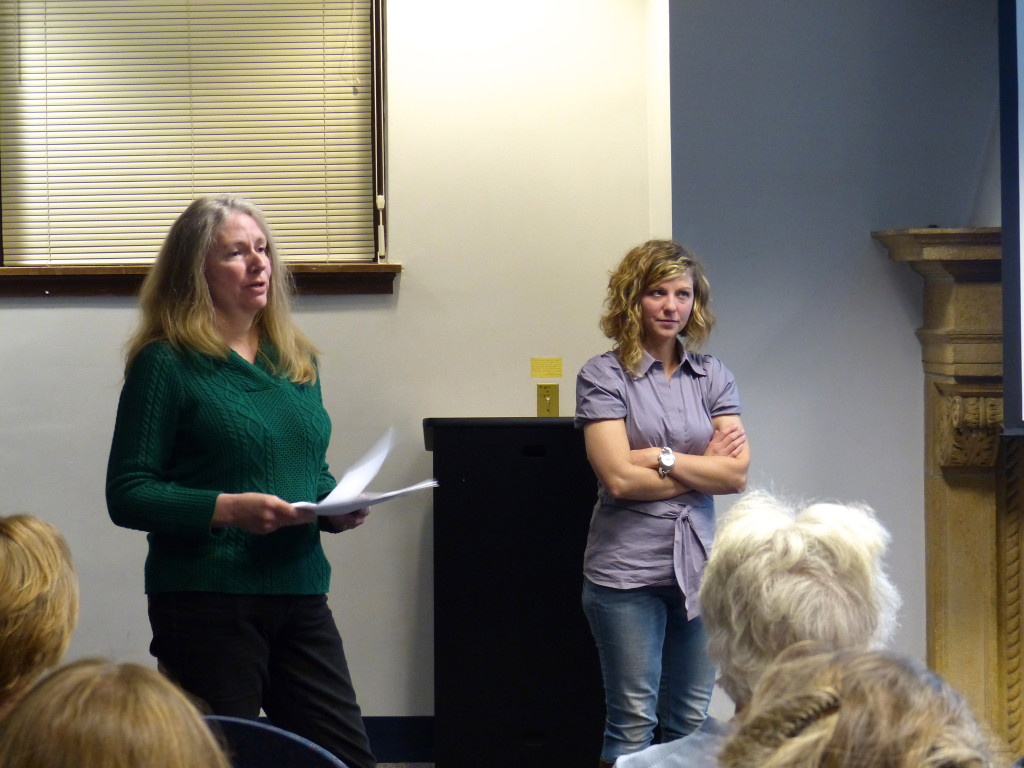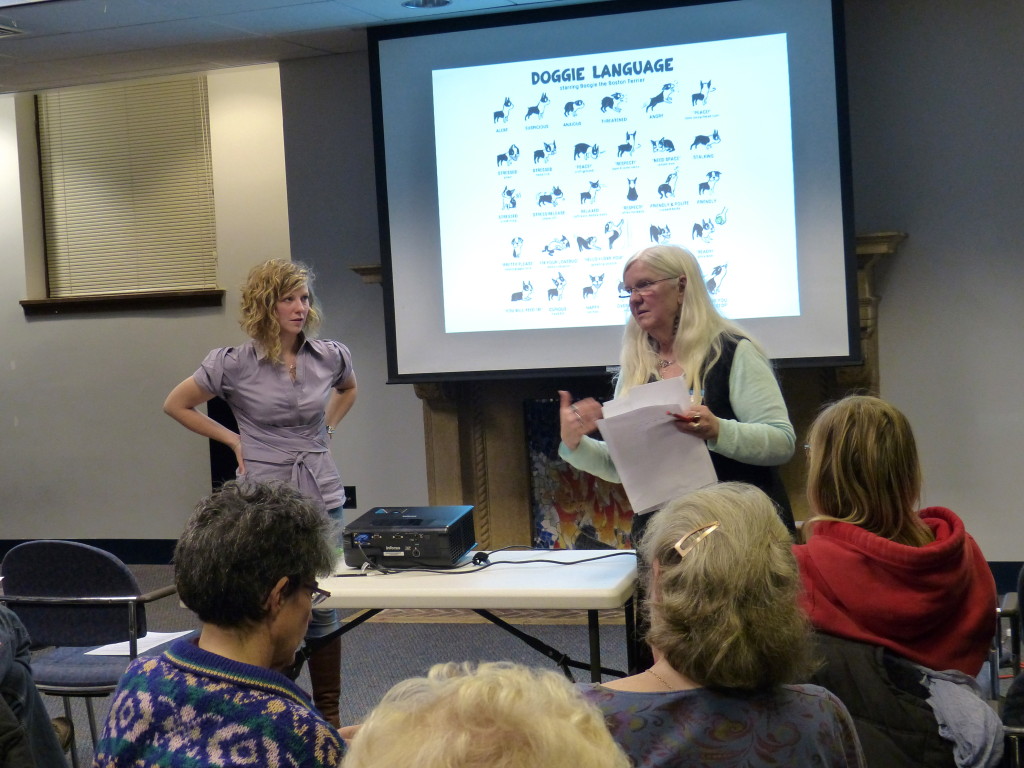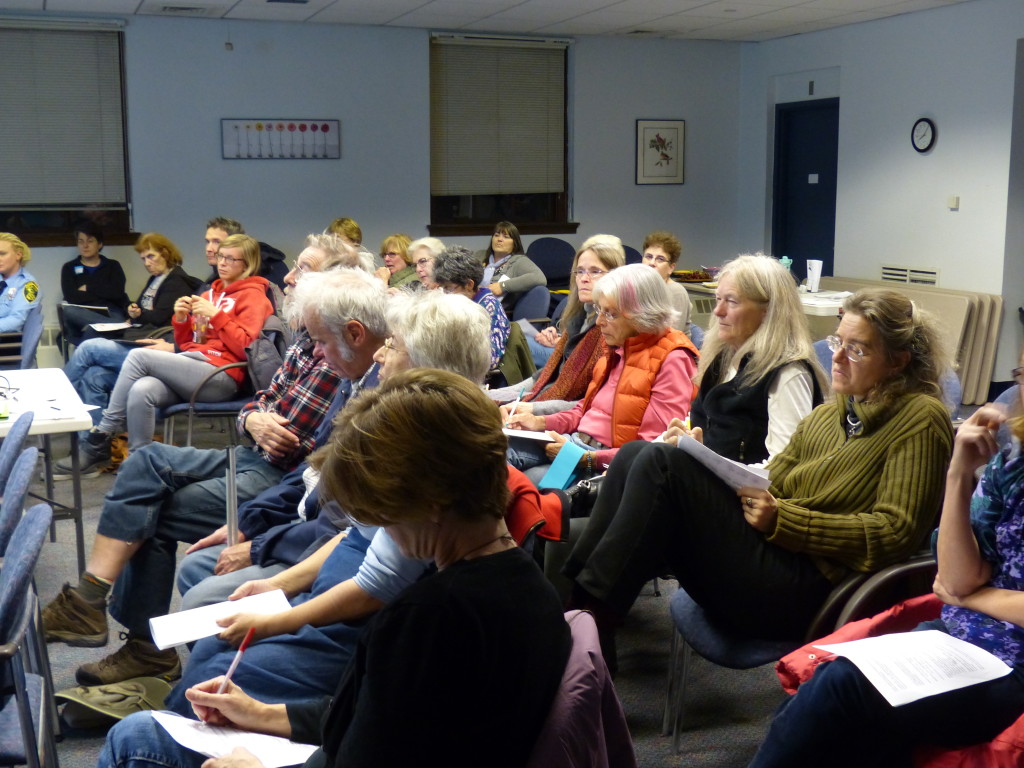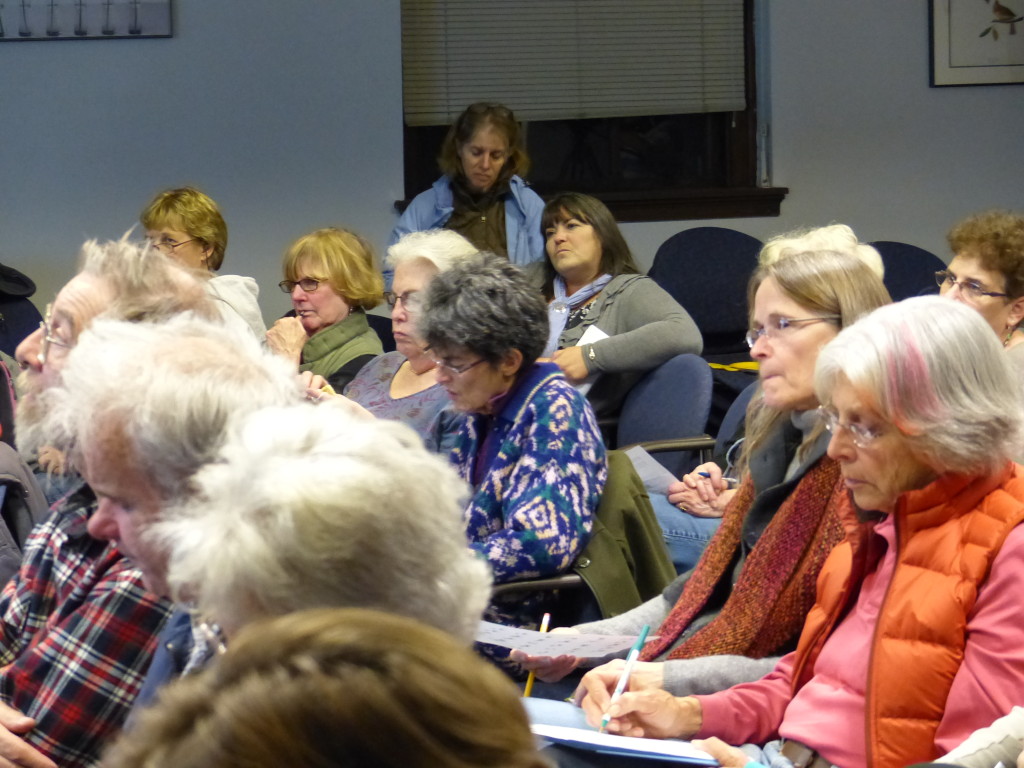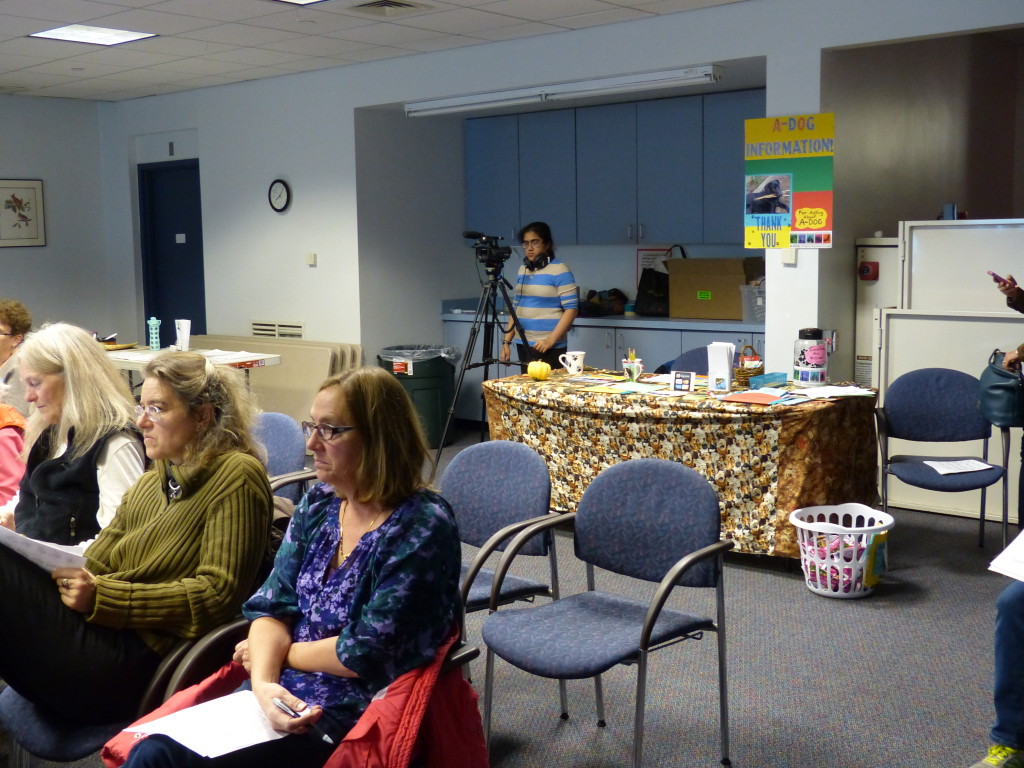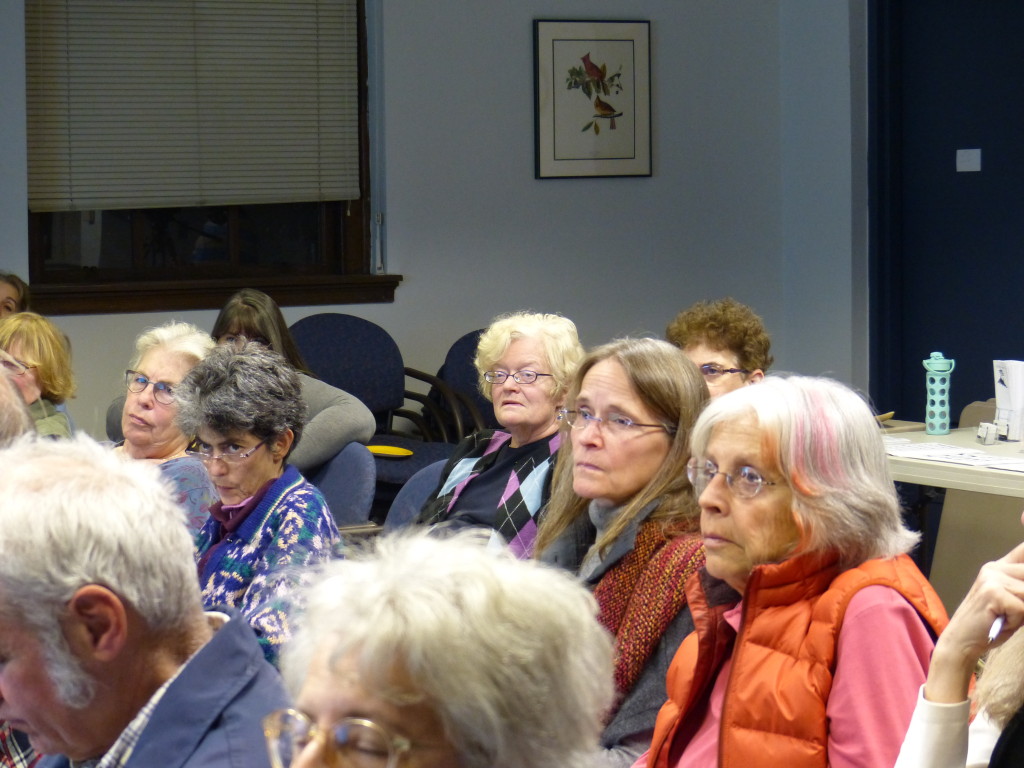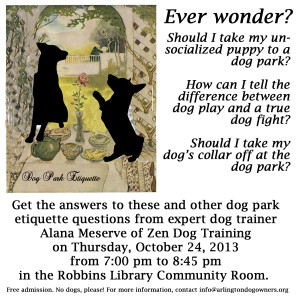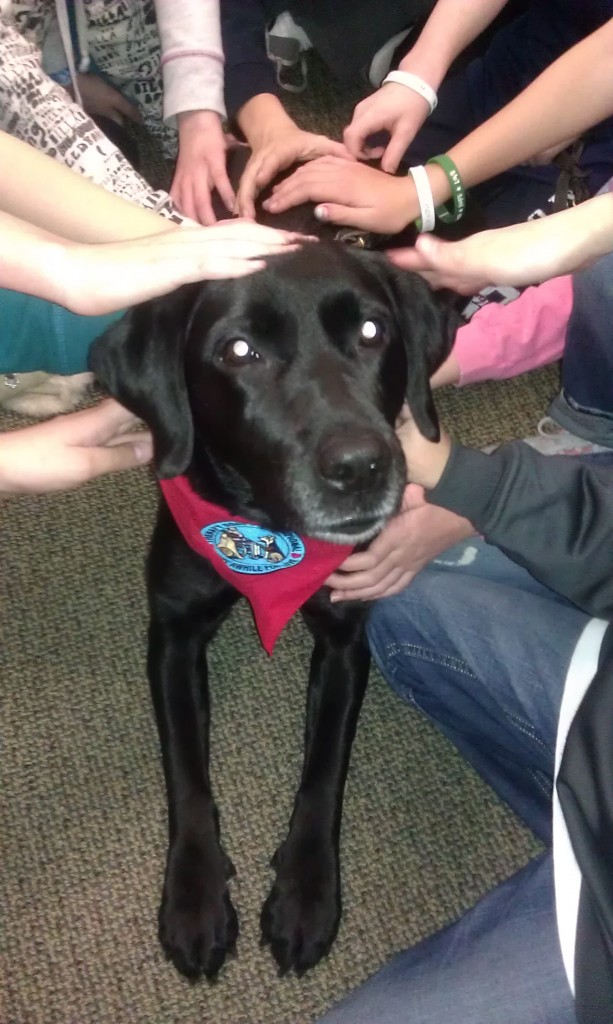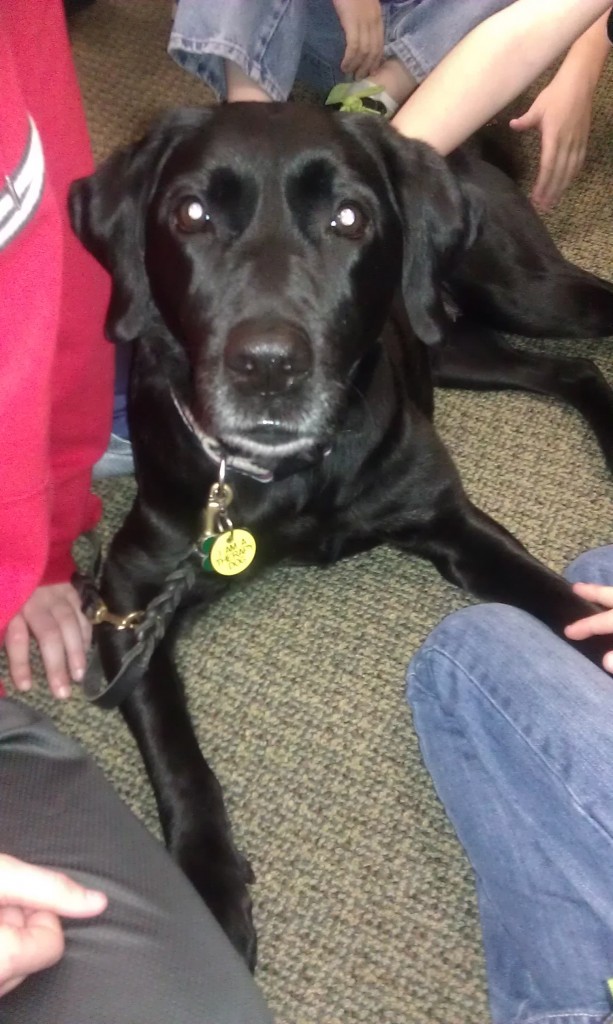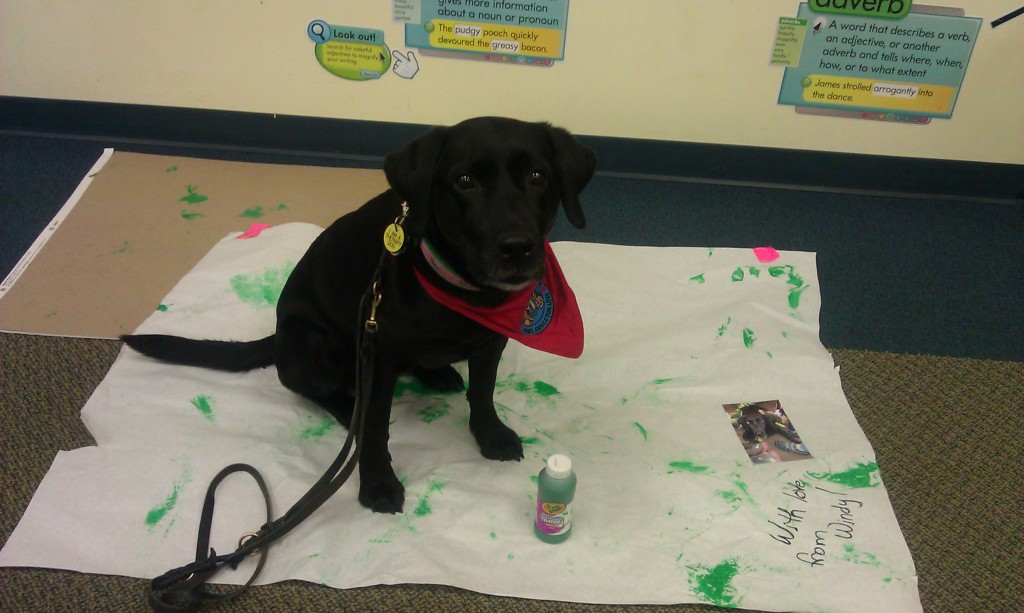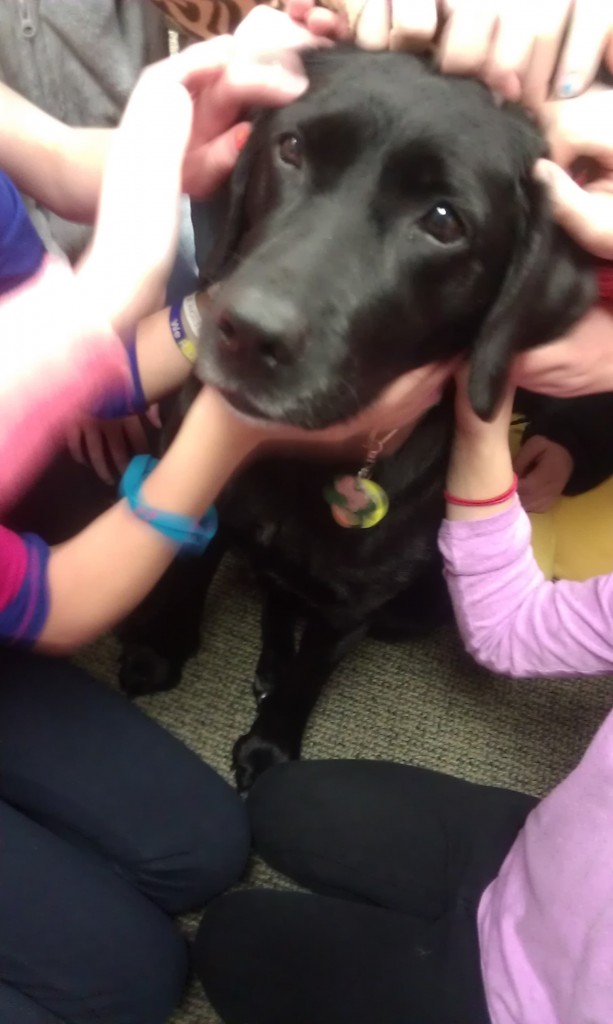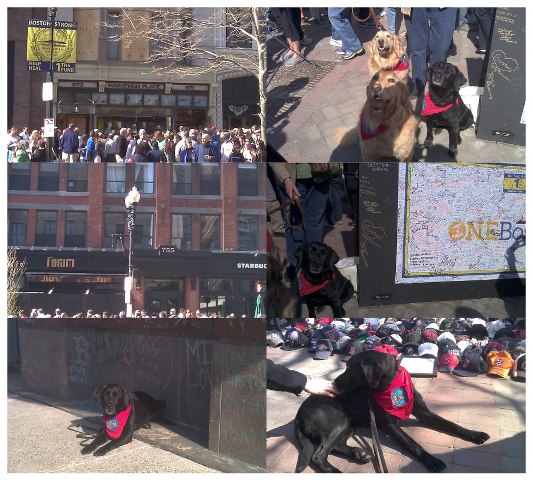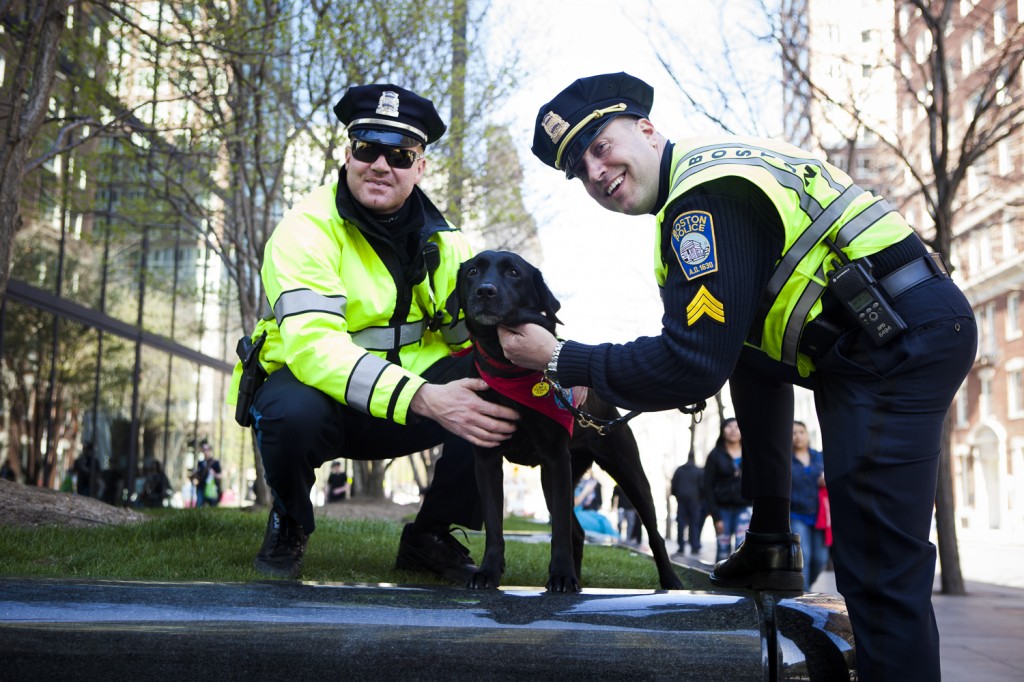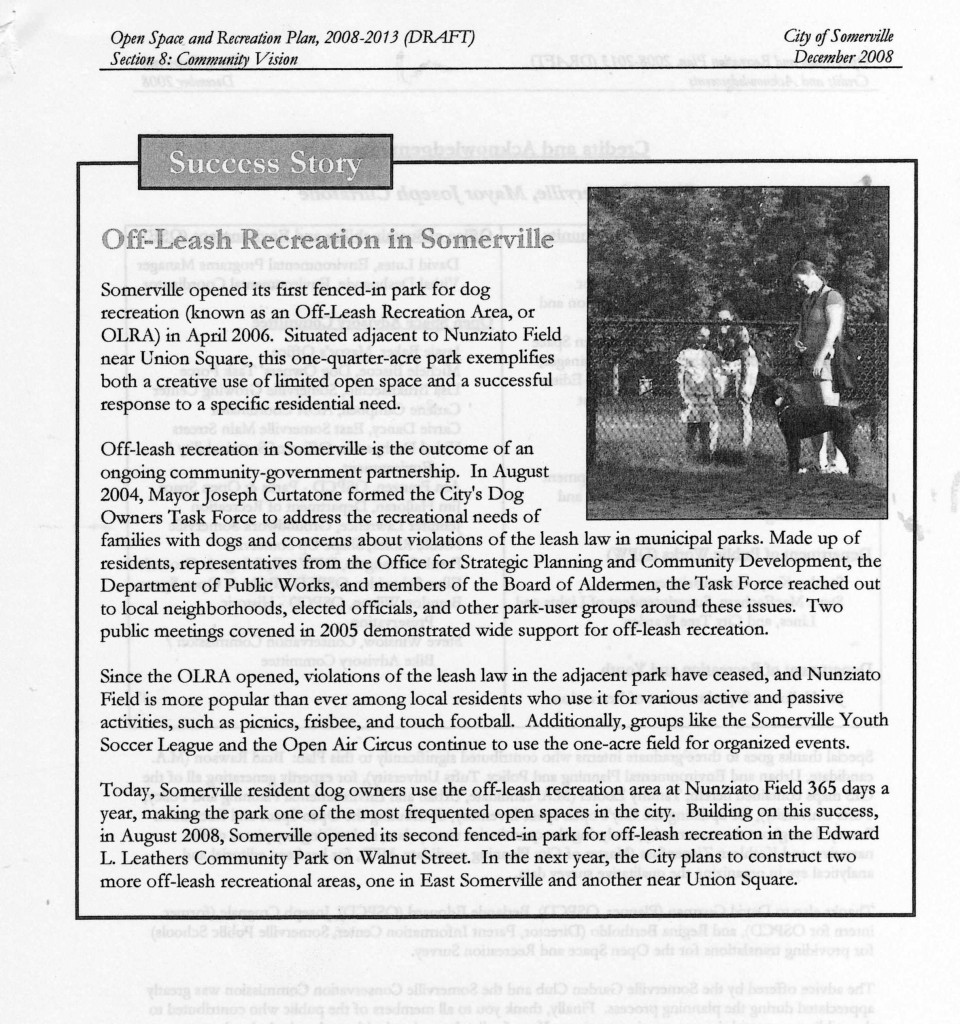As Town Meeting considers Article 36, to amend the bylaws to allow off-leash recreation under certain conditions, several letters in support of off-leash recreation were published in the April 29 Arlington Advocate. (All letters on this topic from two most recent editions were reprinted in their entirety. This consists of twelve letters supporting off-leash recreation (one for fenced parks), and two opposing letters. To add your opinion, enter Comments below this article.)
From April 29, 2010:
Letters supporting the Substitute Motion under Article 36, to allow early-morning responsible off-leash recreation in Arlington parks:
Letter: Consider off-leash hours
By Ellen Duranceau
GateHouse News Service
Posted Apr 29, 2010 @ 06:30 AM
Arlington, Mass. —
I was disappointed by the Board of Selectmen’s “no action” vote on a warrant article that would allow the Parks & Recreation Commission to designate some early morning hours in some areas for walking dogs off leash. I am writing in the hopes that Town Meeting members will consider the issue independently of the selectmen’s comments.
The board’s stated reservations seem wrong-headed. One is that no further bylaw amendments should be considered until dog owners stop violating the existing leash law. Because the current law doesn’t allow dogs to run anywhere in town, this is an unrealistic expectation, and presents an impossible dilemma for those of us attempting to be responsible citizens and responsible dog owners as well. If the existing law was workable, most people wouldn’t violate it.
The other reservation offered by the board, that we should wait to see what happens with plans for a fenced dog park before making any other changes, also doesn’t make sense. Even if a fenced dog park was created, this would not solve the problem for the many dogs and their owners who won’t live near the park, or whose dogs are too vulnerable or shy to participate in rough-and-tumble play with dogs they don’t know.
Dogs have co-evolved with humans for more than 12,000 years to develop a unique interspecies bond. Dogs provide emotional support and significant service (including acting as police dogs, rescue dogs, seeing eye dogs, seizure detection dogs, and therapy dogs among many other roles) in our society. Yes, it is difficult to accommodate the needs of all the human citizens of Arlington with our limited open space. But it’s time for Arlington to join neighboring towns and allow normal exercise and socialization for dogs and their owners. It’s time to stop telling us dog owners that we are criminals for having the same needs as those in Cambridge, Burlington and many other towns, where those needs are met.
The Board of Selectmen should be calling for change, not for adherence to a set of rules that don’t work. — Ellen Duranceau, Chatham St.
**************************
Letter: Socialization is important
By Robin Varghese
GateHouse News Service
Posted Apr 29, 2010 @ 06:30 AM
Arlington, Mass. —
My family and I recently moved to Arlington for the progressive values, good schools and playgrounds for my young children. I have largely stayed out of the local political scene until I heard about the difficulty responsible Arlington dog owners have had obtaining permission to use portions of the public parks to exercise and socialize their dogs with other responsible dog owners.
I have a 6-month-old puppy that does not bark in my yard nor jump on visitors, which is in large part due to socialization I’ve been able to do with other responsible dog owners. It is a shame that Arlington residents have nowhere to legally allow their dogs off leash. Many of the surrounding communities either provide off-leash areas or are off-leash towns.
All dog trainers, books and classes that dog owners look to for advice insist that opportunities to socialize dogs allow them to be trained to be good members of our community. These currently illegal activities make our neighborhoods more peaceful, as a well-exercised dog is a quiet dog. Also, dog owners that may not always pick up after their dogs are reminded of their responsibilities to do so by responsible dog owners when they are together in groups and encouraged to help support off-leash laws.
My children also enjoy playing fetch with our dog and given the small lot size of Arlington homes, it is difficult to do so on our private property. In Arlington, there is no place for us to play fetch, toss a Frisbee or play outside with our family pet.
Surrounding communities provide such opportunities, however, we are prohibited from allowing our dog off leash in the neighboring areas (i.e. Cambridge), as we are not residents. I would like to encourage your readers to write to their Town Meeting representatives and ask for their support during the upcoming Town Meeting and support Article 36. Please help us feel proud to be dog owners in Arlington, a progressive community that respects and hopefully will provide resources for families and “man’s best friend,†the family dog, to play together. — Robin Varghese, Chester St.
***************
Letter: Support Article 36
By Tina Silberman
GateHouse News Service
Posted Apr 29, 2010 @ 06:30 AM
Arlington, Mass. —
As a resident of Arlington and a dog owner, I am writing to express my gratitude to the Parks and Recreation Commission for their support of proposed Article 36 to allow dogs to be off leash at our parks until 9 a.m. I am also writing to encourage Town Meeting members to consider supporting this article as well.
I am incredibly disappointed that after all of the time and effort that has gone into the creation of a suitable compromise plan such as Green Dog, or this new article, that the Board of Selectmen (with the exception of Kevin Greeley), and in particular, Clarissa Rowe, who spent so much time helping to craft the Green Dog Plan, voted No Action on this proposed article.
And, to add insult to injury, the following comment was issued in the report from the BoS to Town Meeting, “[a] majority of the [b]oard also feels the behavior of dog-owners who routinely violate the leash law needs to change before a bylaw amendment should be considered again.â€
Who will be monitoring and tracking the behavior of the dog owners in order to decide when exactly a leash law amendment should be considered again? Is the same group going to be monitoring all of the other laws that are broken regarding behavior at our parks? Such as littering, unauthorized cutting of trees and bushes, fires, gatherings after parks are closed?
Things have escalated over the past few weeks and we now have the police issuing warnings and tickets to dog owners who have their dogs off leash at 6:30 a.m. at the parks. While they are indeed breaking the law, I question the harm they are doing, as well as the selective enforcement of only this law. And, I truly hope that a more serious crime is not committed while the police are spending their time enforcing the leash laws.
The time is now to resolve this divisive issue in our town so that the BoS and Town Meeting can turn their attention to the much more pressing issues that are facing our community.
Town Meeting members, please support Article 36, I would hate to think that a vocal minority of residents have a louder voice than the rest of us. — Tina Silberman, Cedar Avenue
***************
Letter: Dogs need more
By Stephen, Margie, Lindsay and Savannah Weil
GateHouse News Service
Posted Apr 29, 2010 @ 06:30 AM
Arlington, Mass. —
I’ve been a resident of Arlington for the past 32 years and a dog owner for most of that time. In my personal experience, I have never had a confrontation with anyone who is afraid of dogs, dislikes them or is concerned about their impact on the environment or the community.
I believe this is the case because my family and I are all responsible dog owners who understand that not all people respond to dogs the way that we do.
Our children grew up with dogs. In fact, our younger daughter picked out our 130 pound large breed dog when she was 5 years old and has been hooked on them ever since. (She is now 21, and we have a new large breed dog as a member of the family.)
We are respectful of our neighbors, we pick up after our dog (no matter how far into the woods she defecates), she is under voice control when not on a leash, and she loves to romp and play with people and at 145 pounds loves dogs of all sizes and ages. (Her best friend is a 15-pound Terrier who comes to our house for “play dates.â€)
But she needs more room than our backyard (not to mention an enclosed dog park) can provide to really get the exercise and socialization that she needs and deserves. Just like all of the opponents of off-leash dogs, I am a taxpayer and law-abiding citizen of Arlington. I believe that my dog and me should be afforded the same rights as any other taxpaying, law-abiding citizen. This includes full, complete and equal use of the public facilities that my tax dollars support.
That said, I understand that certain members of our community believe that dog owners are putting an additional tax on our meager town budget. For that reason, I have always and will continue to support a fee-based system for dog owners that will help defray the cost of “rangers” or other expenses incurred. But if I have to pay more, then I expect the respect and support of the town to be able to walk my dog in a fashion that is conducive to both my family’s and her mental, physical and emotional good health. — Stephen, Margie, Lindsay and Savannah Weil, Bailey Road
*********************
Letter: Help Arlington move forward
By Susan R. Doctrow
GateHouse News Service
Posted Apr 29, 2010 @ 06:30 AM
Arlington, Mass. —
I urge my fellow Town Meeting (TM) members to support Article 36, allowing limited off-leash recreation for responsible dog owners. I last wrote to the Advocate on this issue in 2007, supporting the Green Dog Plan. In 2008, with others, I founded Arlington Dog Owners Group (A-DOG), whose petition for legal off-leash recreation has been signed by over 900 Arlingtonians.
The Green Dog Plan was narrowly defeated at TM in 2009, with concerns including its complexity. This year, the town established a Dog Park Task Force, to explore possible fenced dog parks, which have been legal here for seven years without positive action. A member of this task force, I feel its goals complement those of Article 36.
As I wrote in 2007, we need “an intelligent alternative to Arlington’s excessively rigid leash bylaw. We dog owners should no longer be made to feel like criminals in our own community, simply for trying to maximize the health, happiness and longevity of our family pets through exercise and socialization. Public parks belong to all of us, and all users should be able to share the benefits of these open spaces in a mutually respectful manner.â€
Under Article 36, we propose early morning off-leash recreation under effective owner control, with several excluded sites and, most important, with Parks and Recreation Commission authority to exclude any other sites. While this adds much flexibility, and is consistent with its role in other municipalities, some have voiced concerns that the commission would not allow public input or is otherwise not to be trusted. Our proposal is conservative compared to other bylaws (e.g. Lexington, Bedford, Burlington, Wellesley) allowing dogs off-leash in virtually all parks at all hours.
With one very thoughtful dissenting vote by Selectman Kevin Greeley, the Board of Selectmen voted “no action†on Article 36, reporting to TM that “behavior of dog-owners who routinely violate the leash law needs to change before a bylaw amendment should be considered again.â€
With due respect to those four selectmen, this penalizes responsible dog owners for the actions of the irresponsible few. As noted by one supporter, driver’s licenses are not denied to all because some drivers cause accidents. The Parks and Recreation Commission subsequently voted to support our proposal, noting its simplicity and reasonableness. I hope that TM agrees, helping Arlington to finally move forward on this issue. — Susan R. Doctrow, Westminster Avenue
*************
And, in support of the important and complementary work of Arlington’s Dog Park Task Force, to create fenced Off Leash Recreation Areas:
Letter: Essential to dog’s health
By Alice Bouvrie
GateHouse News Service
Posted Apr 29, 2010 @ 06:30 AM
Arlington, Mass. —
It is essential to the health, happiness and well being of all our citizens in Arlington that we have a fenced in dog park where our dogs and owners may socialize and exercise. There are ramps for our handicapped citizens, buzzers at the lights for our sight-impaired citizens, bike paths and lanes for our cyclists, and we should have designated dog parks for our pets and owners.
When as many of our citizens as possible are justly accommodated, we all do better as a community. I hope that we can implement a viable dog park in Arlington soon, and from there we can make adjustments. — Alice Bouvrie, Woodside Lane
**********
AND a new set from the following week, May 6. Six letters from proponents of Article 36 and two from apparent opponents:
Letter: Wonderful compromise
By Amanda Sullivan
GateHouse News Service
Posted May 06, 2010 @ 03:15 PM
Arlington, Mass. —
I am writing to ask the Town Meeting members to support Article 36, which would allow Arlington dogs to be off leash in local parks specified by the Parks and Recreation Commission until the hour of 9 a.m.
My husband and I are Arlington residents who have lived in town for more than six years, and have been dog owners for more than four years. Over the years, we have met many Arlington dog owners and their family pets. I have been very impressed with Arlington residents’ behavior as dog owners — making sure their dog is under voice control and well behaved as well as picking up their dogs waste.
Our dog is friendly, happy and well behaved largely because we make sure she is exercised daily. I find it very frustrating to not be able to play fetch with my dog in a park in my own town, especially when so many neighboring towns, such as Burlington, Lexington and Cambridge, have dog parks or reasonable off-leash laws. Many of these towns only allow their own residents to utilize the dog parks, making it impossible for Arlington residents to legally allow their dogs off leash for socializing and exercise purposes.
I urge Town Meeting members to vote in favor of article 36; it is a wonderful compromise that would Arlington dog owners and our family pets to finally be able to use some of the parks and facilities our tax dollars are paying for in a controlled manner. — Amanda Sullivan, Ronald Rd
*****
Letter: We can coexist
By Jennifer Stone
GateHouse News Service
Posted May 06, 2010 @ 03:14 PM
Arlington, Mass. —
I was thrilled to see the number of letters in favor of Article 36. As a responsible dog owner living and paying taxes in Arlington, I find it amazing that I cannot socialize, and exercise my dog legally in town.
I’ve heard the complaints of the mess it would create, and I ask you, have you seen a soccer field after a Saturday’s worth of youth games? The litter is everywhere, but no one reasonably expects games to be stopped because of the actions of the minority. The responsible dog owners are being penalized for the anticipated behavior of a few.
I lived in San Francisco for two years with my dog, near a small city park that was a major tourist attraction, (the ‘painted ladies’ Victorian homes border the park), and the dogs, residents, and tourists all coexisted. If a city as densely populated as San Francisco can figure out how to allow dogs some freedom, I can’t imagine how Arlington can not. — Jennifer Stone, Ridge Street
*****
Letter: The sky will not fall
By Iain Miller
GateHouse News Service
Posted May 06, 2010 @ 03:04 PM
Arlington, Mass. —
I’d like to urge Town Meeting to accept the very reasonable Article 36 provision for early morning off-leash exercise and socialization rights, at the discretion of the Parks and Recreation Commission.
As one of the sponsors of this article, I’d note the recent unanimous support of the commission. Notably, this article also reflects feedback from the discussion at Town Meeting last year (at which the more complex Green Dog program was narrowly voted down, partly on grounds of complexity), and culminates about eight years of efforts by many responsible dog owners in our town.
While a task force has indeed been established to consider a very limited number of fenced areas, the reality is that such expensive facilities will likely be several years in the making, and not accessible to all. In the interim, I feel that it is long past time for Arlington to join our progressive neighbors such as Somerville and Lexington by taking an interim (no cost) step to de-criminalize a recreational activity that brings many neighbors together. I’ll confidently predict that the sky will not fall and we can all move on. — Iain Miller, Kensington Park
******
Letter: Say ‘yes’ to Article 36
By Mary McCartney
GateHouse News Service
Posted May 06, 2010 @ 03:01 PM
Arlington, Mass. —
The issue of off-leash dogs has been controversial for Arlington for a number of years, but I believe Article 36, which will be up for vote soon at Town Meeting, is a terrific compromise.
This article will allow dogs to be off-leash, under effective handler control, during early morning hours. It will allow the Parks and Recreation Commission the authority to exclude specific sites. And it specifically excludes school grounds and grounds near playground equipment.
This article is much more conservative than other surrounding communities. The parks are not heavily used during these hours, and I believe this article does a good job of balancing the needs of responsible dog owners with other park users.
The parks are a shared resource. Dog owners are taxpayers too. As a responsible dog owner myself, I value the time I spend with other dog owners, and enjoy that sense of community.
I encourage my fellow Town Meeting members join me in voting in favor of Article 36. — Mary McCartney, Town Meeting Member, Precinct 1, Michael Street
*****
Letter: Give us something to lose
By Jennifer Goebel
GateHouse News Service
Posted May 06, 2010 @ 02:58 PM
Arlington, Mass. —
Give us something to lose
I am writing to express my support for off-leash recreation time for dogs as proposed in Article 36 of this year’s Town Meeting warrant. Right now, there is no way for Arlington dog owners to be responsible dog owners and follow the leash law.
We have learned a lot about canine behavior and health since this restriction was put into place many years ago, and we now know that off-leash time is important for not only the health of the dog, but also its socialization. A tired dog is a good dog. A well-socialized dog is a friendly, well-behaved dog. Common sense says that every one in this town has an interest in Arlington dogs being well-exercised and well-socialized, whether you love them or hate them.
What we have now is all stick and no carrot.
If the town votes against this rule — again — and we continue with the status quo, nothing will improve for anyone. Dog owners will continue to run their dogs off-leash whenever and wherever they think it’s appropriate and convenient because we have nothing to lose. Give us something to lose. — Jennifer Goebel, Sunset Road
******
Letter: An excellent approach
By Monique Chaplin
GateHouse News Service
Posted May 06, 2010 @ 02:55 PM
Arlington, Mass. —
I am writing to express my appreciation to the Parks and Recreation Commission for supporting Article 36, the “off-leash dog hours” article. I feel that Article 36 is a reasonable, reasoned approach to making our shared parks accessible to all users, in a way that is least disruptive to all.
I am the owner of a young and exuberant dog who has learned through socialization with other dogs, and consistent training, to be a good “citizen” among other dogs, while remaining under good voice control. I believe that Article 36, which leaves decisions about which parks and what hours should be determined “off-leash” is an excellent approach to making our parks accessible to responsible dog owners of Arlington.
I encourage our Town Meeting members to vote in favor of this article. — Monique Chaplin, Michael Street
*******
Letter: Kids before dogs
By Michael Jacoby Brown
GateHouse News Service
Posted May 06, 2010 @ 02:52 PM
Arlington, Mass. —
To call unleashing dogs “green†is a sad misnomer. Allowing dogs to run free in Arlington will do nothing to “green†the town or the planet. When our public schools are facing a financial crisis and we are laying off teachers, spending any money on dogs (building fences for dog parks, etc.) puts dogs ahead of children. Does the town spend money on dogs before children?
If dog owners want “early morning†hours to allow their dogs to run free, “early morning†does not mean up to 9 a.m. From 7 to 9 a.m., many children are going to school or other activities. To put unleashed dogs in the path of children is not the way to go for our children’s safety. — Michael Jacoby Brown, Brattle Terrace
*******
Letter: Need to co-exist respectfully
By Mary Ellen Bilafer
GateHouse News Service
Posted May 06, 2010 @ 02:51 PM
Arlington, Mass. —
I hope to present a unique point of view regarding the current leash law debate and Article 36, which proposes off-leash times in Arlington’s parks.
On Patriots’ Day, I took my leashed dog to Menotomy Rocks Park. As a Town Meeting member and dog owner, I’m aware of the efforts of the A-DOG Committee. I agree that dogs benefit from off-leash areas. I appreciate their efforts and understand the reasoning behind them. However, there are currently no legally established off-leash areas in Arlington. Why then, were almost all of the 15 to 20 dogs I came across off leash?
One can assume this was a fair representation of Arlington dog owners, and not an irresponsible minority as some suggest I have seen the same thing in several other parks around town. I wonder how many “non-dog†citizens avoid the parks for this reason?
When I politely informed a few owners of the leash law, I was consistently met with rudeness and indifference. As a lifelong resident of Arlington, I was disappointed to see such a selfish attitude from my fellow citizens. Not everyone should be subjected to a dog running at him or her in a public area when he or she has an expectation that all dogs will be leashed.
I love my dog but am not so arrogant to assume that everyone will love her as much as I do. There are some people who are very uncomfortable with dogs and it’s also a safety issue — especially when children are involved. No animal is 100% predictable — no matter how confident the owner is to the contrary.
If I choose, however, to go to an off-leash area, I accept these risks and know what to expect … I do not foist those risks onto others who haven’t decided to accept them. Some have suggested that it’s OK to break this law simply because it is unfair. I disagree. When/if off-leash areas are established, then it will be clear who can enjoy the parks freely, and when and where. Designating fenced areas is the safest and most clear-cut option in my opinion and allows for fair park usage for all.
It’s still unclear what will be decided at Town Meeting … but until the situation changes, we need to co-exist respectfully so that everyone can comfortably enjoy the parks. It’s simply unfair otherwise. — Mary Ellen Bilafer, Cutter Hill Road
********
And, from May 13, two more in favor, none opposed:
Letter: Should not be limited
By Catherine Solovay
GateHouse News Service
Posted May 13, 2010 @ 05:53 PM
Arlington, Mass. —
I would like to express my support for Article 36 permitting limited places and times for off-leash exercise of dogs by responsible owners. Dog ownership is a responsibility, but one that can bring great joy to a family. It is also our responsibility to give our dogs appropriate exercise, and at the moment, I need to drive to another town daily in order to properly give my dog a run. I do not think that the pleasures and health benefits of dog ownership should be limited to families with cars, or wealth enough for an abundant fenced yard. I urge a vote in favor of Article 36. — Catherine Solovay, Kenilworth Rd.
***********
Letter: Building a community
By Lana Petersson
GateHouse News Service
Posted May 13, 2010 @ 05:52 PM
Arlington, Mass. —
This morning, while our dogs were playing, I had a great conversation with a fellow dog owner that made me realize why I support the limited off-leash laws. We didn’t talk about anything in particular, it was just nice to have company and meet someone new from the neighborhood. It put me in a good mood all day.
I left realizing why I care so much about the leash law: it creates congregation spots that create a great community, the same way a jungle gym does. I know people from all over East Arlington, and not just dog-owners, because my dog introduces us when we might not have otherwise approached each other. When we were looking to buy our first house, it was this feeling of community that kept us in the same neighborhood (literally, three streets down) as opposed to the more dog-friendly Cambridge. Some of this happens on leash, but if we’re out, it’s usually to get some exercise and we’re on the move.
I can be shy but love making connections, this is the reason why I love having a dog so much, and why I’m in big favor of a limited off-leash law that lets us all socialize together. I am especially in favor of limited times and places. The wonderful thing about community space like fields is bringing people together, in all different ways, at different times of day, and learning how to all share a space to build a healthy community for everyone involved. — Lana Petersson, Milton Street
***********
